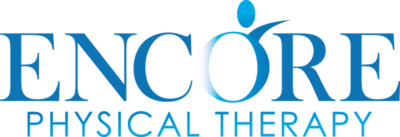Although you may not associate your lower back pain with your calves, when something is off-kilter in one area, it easily affects more distant areas of the body. If you think about it, your abdominals and lower back muscles support the majority of your musculoskeletal network, literally from head to toe. Without a strong core, your hips and spine can easily get out of alignment. When your alignment is off, you’ll often feel it in your knees, ankles, shoulders, or neck.
Your core is key to maintaining posture and keeping your body primed for movement. If you are recovering from an injury or have fallen out of shape from long hours working at a computer, here are a few ways you can easily incorporate some basic core exercises into your day, to achieve all the benefits core strengthening has to offer.
Arm/Leg Reach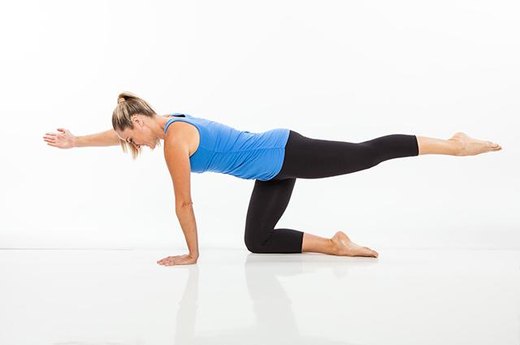
Start by getting into position on your hands and knees. Make sure you have proper padding for your knees on the floor. Ensure your shoulders are lined up above your hands and your knees are directly below your hips. While holding your stomach tight and keeping your back flat, carefully extend both your right arm and your left leg, using the opposite limbs for balance. Fully extend, creating a flat board the length of your body. Bring the extended arm and leg under your body until your elbow touches your knee, maintaining balance as you move. Then place your hand and knee back onto the ground position and switch, extending the left arm and right leg. Complete 10 reps on both sides.
Standing Knee Crunches
Everyone knows crunches represent the ubiquitous core exercise, but if the floor version is too hard on your back, neck, or shoulders, perform a standing version instead. Stand with your feet shoulder-width apart. With a tight core and relaxed shoulders, slowly raise one knee until it meets the opposite elbow. If the twisting motion required to lower your elbow is too much simply do the leg lift portion instead. Complete 10 reps.
Elbow Plank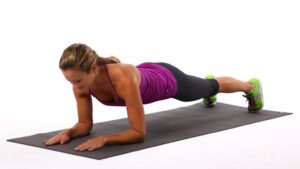
The plank is a basic move with a huge core-strengthening impact. A full plank is performed with straight arms, but a modified version is achieved on your elbows instead. Use the technique that is best for you based on the potential wrist, elbow, or shoulder ailments. Roll your toes under slightly, placing the weight on the bottom of your toes. Similarly, place your hands or elbows flat on the ground directly below your shoulders. Pull your stomach tight and do not allow any sag in your lower back.
Your body should make a “plank” like a board. Hold for 10 seconds. Lower a knee to rest, then reset your position for another 10 seconds. As you become stronger, try to hold the proper position for 20 seconds, then 30 seconds, etc, working up to one minute.
For an added boost, hold the plank position while pulling one knee beneath and across your body. Return it to the extended position and repeat with the opposite side. For a modified version, hold the plank on your elbows and knees until you build enough strength to move to your toes.
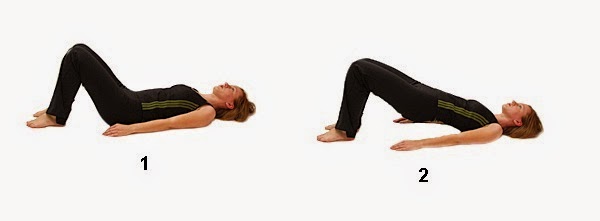 Hip Lifts
Hip Lifts
Think of hip lifts as an opposite form of crunches where you raise your hips instead of your head and shoulders. To start, lay flat on your back with your arms straight down along the side of your body. Bend your knees with your feet flat on the floor. Using your feet and shoulders as an anchor, lift your hips until your body is flat from shoulders to knees. Lower and repeat, maintaining a tight core as you go. Stability is critical so focus on squeezing your glutes and abs as you lift and lower.
Side Hip Lift
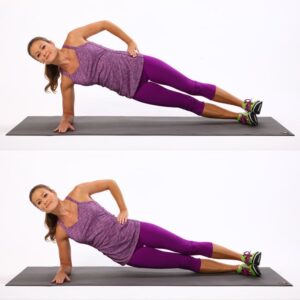 To work the opposite muscles of your core lay on your side with one ankle stacked on top of the other. Put a pad beneath your elbow and ensure it is directly below your shoulder. Then lift your hips straight towards the ceiling and lower back to the ground, maintaining balance and control. Do five repetitions and then move to the other side. If this exercise is too challenging, try to lift and hold instead of moving up and down.
To work the opposite muscles of your core lay on your side with one ankle stacked on top of the other. Put a pad beneath your elbow and ensure it is directly below your shoulder. Then lift your hips straight towards the ceiling and lower back to the ground, maintaining balance and control. Do five repetitions and then move to the other side. If this exercise is too challenging, try to lift and hold instead of moving up and down.
While these exercises are introductory, it’s important to check with your doctor or physical therapist before beginning any exercise program to ensure the movements are safe for you.
Also know you don’t have to set aside a lot of time each day to begin your progress. Instead, make these exercises part of your everyday activities. Drop and hold a plank while your coffee reheats. Throwdown a few hip lifts during the last minute of the spin cycle on the washing machine. Perform some knee crunches while brushing your teeth.
Most of all, remember to focus on form over repetitions. The goal is to strengthen and improve support so doing an exercise five times correctly is preferable to doing twice as many imprecisely.
